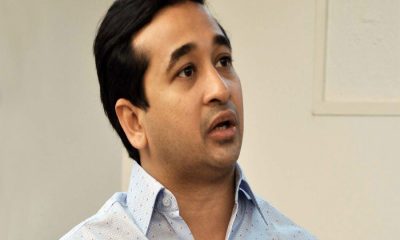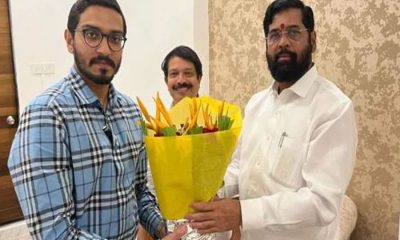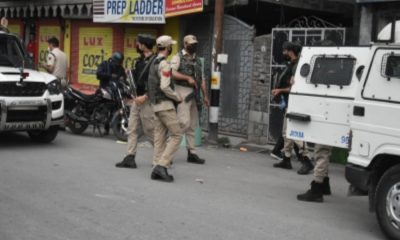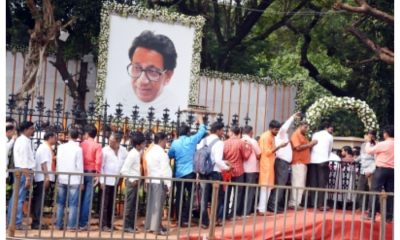Maharashtra
When Balasaheb Thackeray safeguarded the future of a displaced community
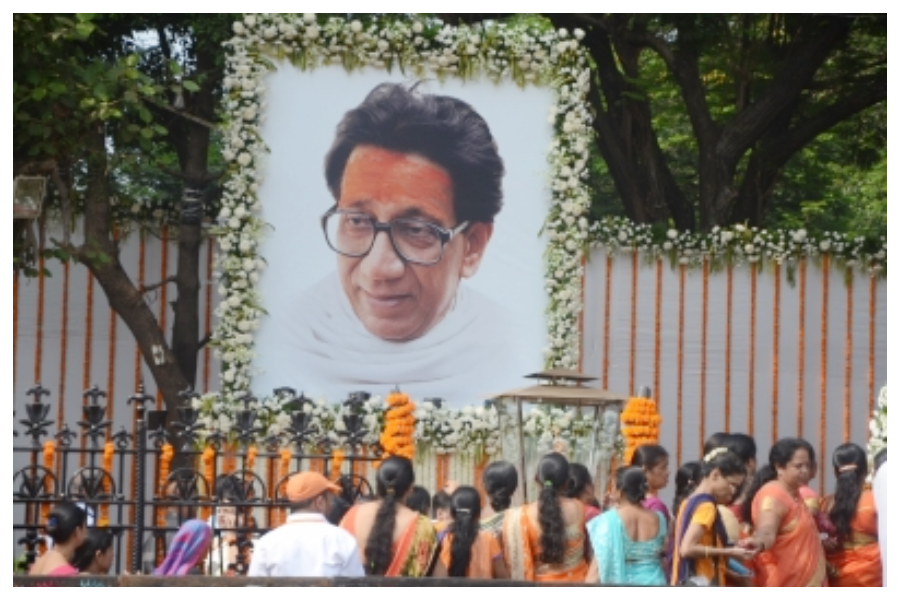
More than three decades ago, when thousands of Kashmiri Pandits fled the terror nightmare in their homeland in 1990 to seek refuge elsewhere in India, many landed in Mumbai, the City of Dreams, and Pune, the academic capital of Maharashtra.
A majority of the uprooted Kashmiri Pandits, with their parents, wife and children, escaped from certain death with hardly anything more than the clothes they wore, and spent months in agony and uncertainty over how to rebuild their future from scratch in strange surroundings.
Maharashtra was the only state which opened its doors, hearts, wiped their tears and helped the Kashmiri Pandits grow new roots in this state, over a couple of thousand kms away from their birthplace.
“At that time, a group of Kashmiri Pandits met the roaring tiger of Shiv Sena, Balasaheb Thackeray. Led by the late Lt Gen (Retd) P.N. Hoon, the delegation discussed the entire issue of Kashmiri Pandits threadbare with the Sena Pramukh,” said Sanjay Nahar, who runs an NGO, Sarhad, in Pune.
Acclaimed author-journalist Rahul Pandita, a teen then, recalls how the Kashmiri Pandits — though penniless — did not seek monetary aid from Balasaheb Thackeray, but wanted something that could help them stand on their feet and make them independent in the long run.
Nahar said the delegation requested Balasaheb Thackeray to use his good offices and offer the Kashmiri Pandits reservations in technical or engineering courses in various academic institutions here.
Interestingly, the meeting was facilitated by a reserved, young journo — Sanjay Raut — now the stormy petrel of the Sena and its chief spokesperson.
Balasaheb Thackeray readily agreed to the proposal — though some opposition parties then had sniggered — and sowed the seeds for affording a stable future to an entire generation of Kashmiri Pandits.
Amit Wanchoo — the grandson of the legendary H.N. Wanchoo who was assassinated by terrorists in December 1992 — said that it was only Balasaheb Thackeray then “who threw a lifeline to Kashmiri Pandits” when they had nobody to call their own.
“Many had no funds or friends, spent months in dirty cattle-sheds or slums, worrying about their future. We always believed that education is important for children, but educating them away from their homeland was a big challenge,” said Wanchoo.
He is among the few who decided to remain in Kashmir despite the near-total exodus by his fraternity.
With Balasaheb Thackeray throwing open all the higher-technical-engineering institutions for Kashmiri Pandits, thousands took advantage to enrol themselves and encounter the future with confidence, and around 7,000-8,000 have benefitted, said Nahar.
More importantly, Pandita said that the gesture came without any ‘strings attached’, and Balasaheb Thackeray never treated them as any kind of ‘a political vote-bank or a bargaining tool’, and it remained a totally unselfish measure.
Sena MP Raut remembers the days when Balasaheb Thackeray was the sole person who spoke for the Kashmiri Pandits when the rest of the country kept quiet in dread of the terrorists.
“When the delegation met Balasaheb Thackeray, he openly advocated giving arms to the Kashmiri Pandits for their self-defence… Instead, they asked for educational quotas, which he readily agreed to and allowed 5 per cent reservation in the state. Nobody knows the pain of the Kashmiri Pandits more than the Shiv Sena,” Raut said.
Pandita and Wanchoo point out how many Kashmiri Pandits occupying top positions in Indian government or in leading companies worldwide had benefited from Maharashtra’s generosity in their darkest hour.
Wanchoo said that inspired by Balasaheb Thackeray, even Maharashtra proved magnanimous towards Kashmiri Pandits and contributed their mite to wipe the tears of their brethren from the snowy Valley.
“I met him in 1994 and he was surprised to learn that some — like me — still opted to live on in Kashmir. There were many young students living in home-stays, rentals or as paying guests in Maharashtra. But when they couldn’t afford to pay their dues, the local owners/families quietly waived them off,” said Wanchoo.
Nahar recalled the times when many Kashmiris — Pandits, Hindus, Muslims and Sikhs — who became ‘refugees’ overnight, had problems with even basics like food and clothes and many NGOs came forward in Mumbai, Pune, Aurangabad, Nashik and other cities to care for them.
According to Pandita and Wanchoo, “we are indebted to Balasaheb Thackeray and till now, we consider Maharashtra as our ‘second home’ for all practical purposes”.
Years later, Balasaheb Thackeray’s initiative bloomed across the country with other states and even the Centre coming up with various reservations, quotas, grace marks, certain privileges etc. for the Kashmiri Pandits/Muslims/Sikhs, that ensured the displaced persons secured a firm foothold in life.
Maharashtra
Sashil Kodiyeri apologizes after tension over Marathi-Hindi controversy
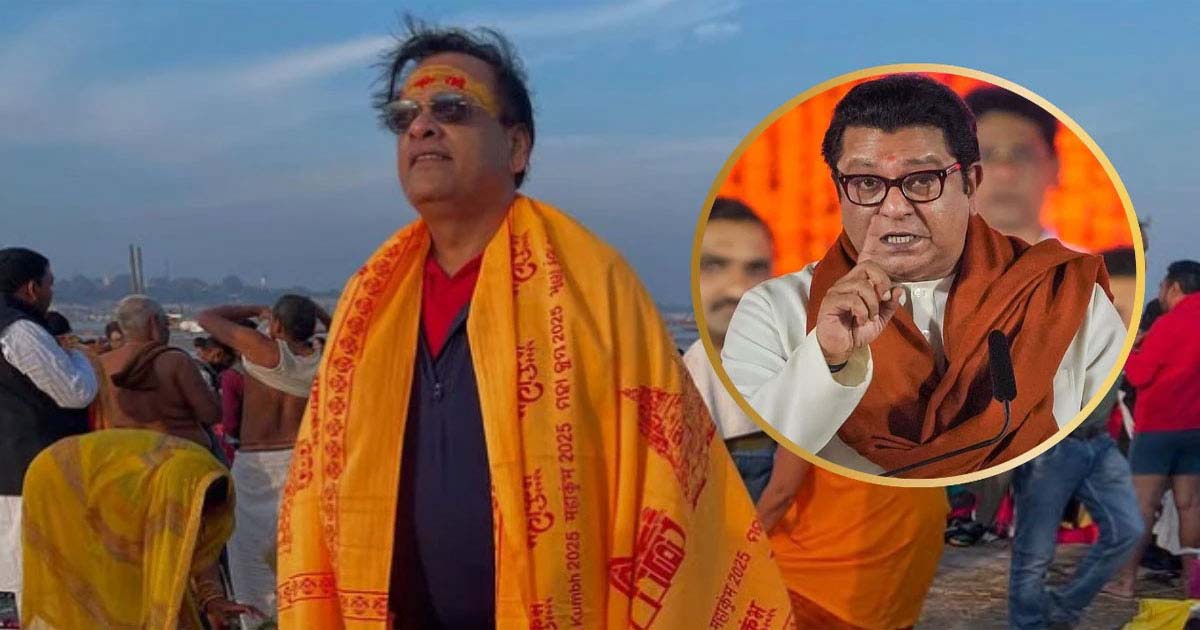
Maharashtra: In the context of the Mumbai Marathi-Hindi controversy, Shishil Kodia has apologized for his controversial statement. He said that his tweet was misrepresented. I am not against Marathi. I have been living in Mumbai and Maharashtra for the last 30 years. I am a fan of Raj Thackeray. I constantly comment positively on Raj Thackeray’s tweets. I tweeted in my emotions and I made a mistake. This tense and tense atmosphere should end. We need a favorable environment to accept Marathi. So I request you to forgive me for this mistake for Marathi. Earlier, Shishil Kodia had made a controversial statement about Marathi and refused to speak Marathi, due to which MNS workers attacked and pelted stones at Shishil’s company WeWork. After which Shishil has now apologized to X
Maharashtra
Maharashtra Marathi Hindi Controversy: Strict action will be taken against those who take law into their hands: Chief Minister Devendra Fadnavis

Mumbai: Maharashtra Chief Minister Devendra Fadnavis has made it clear on the Hindi-Marathi language dispute that linguistic discrimination and violence cannot be tolerated. If anyone instigates violence in the name of Marathi language or takes the law into his own hands, strict action will be taken against him because it is the government’s responsibility to maintain law and order. He said that in the Mira Road Hindi Marathi violence case, the police have registered a case and taken action.
A committee has been formed in the matter of Marathi and Hindi language. Whatever is better for the students on its recommendation, the government will implement it. No decision has been taken under anyone’s pressure. He said that the recommendation for Hindi language was made during the Maha Vikas Aghadi rule itself, but now these same people are opposing it. The public knows everything.
He said that in this election, BJP has got 51 percent Marathi votes. Violence and discrimination in the name of language cannot be tolerated. Marathi is a source of pride for us, but we do not oppose Hindi. What will happen if a Marathi businessman in another state is asked to speak his language? In Assam, he was asked to speak Assamese. He said that strict action will be taken against those who break the law.
Maharashtra
Case registered for burning copy of Hindi Marathi dispute order
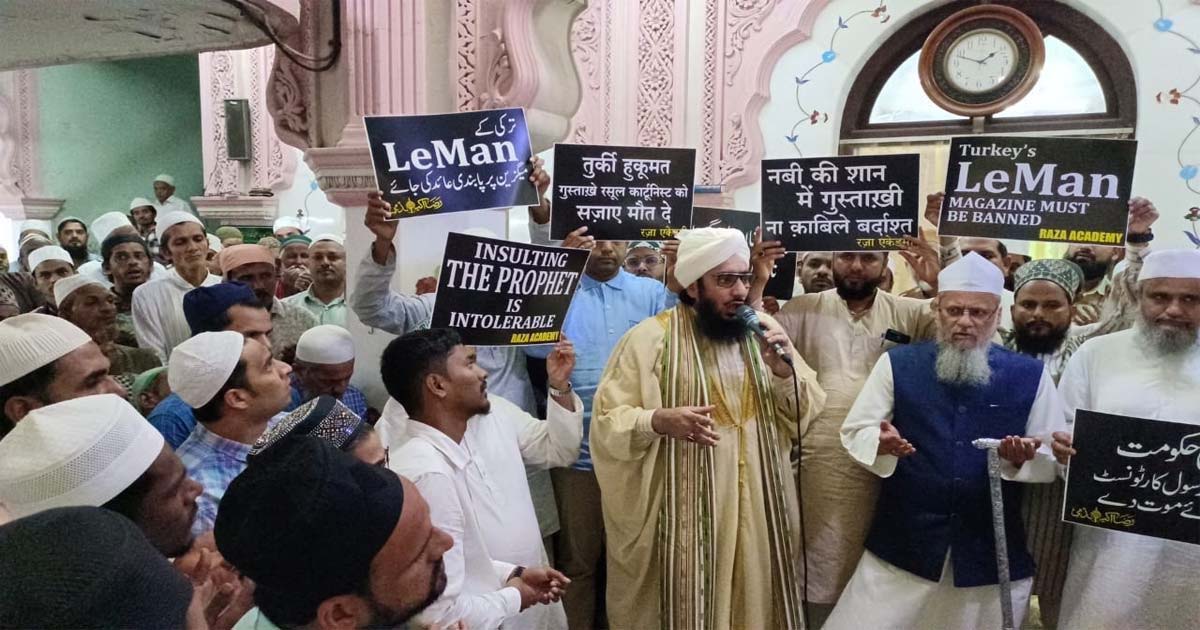
Mumbai: Mumbai Police has registered a case against 200 to 300 activists including Deepak Pawar, Santosh Shinde, Santosh Kharat, Shashi Pawar, Yoginder Salulkar, Santosh Veer for protesting without permission, violating prohibitory orders and Police Act in the case of burning copy of order making Hindi language compulsory. The accused have been booked under Section 189(2), 190,223, Maharashtra Police Act at Azad Maidan Police Station. The case has been registered on the complaint of complainant Santosh Suraj Dhundiram Khot, 32 years.
According to the details, on June 29, between 2 and 3:30 pm, a copy of the government order against making Hindi i.e. third language compulsory in primary education was burnt without permission on BMC Road adjacent to Marathi Patkar Singh and the government order was violated. The accused had not taken any permission for this demonstration and had violated the prohibitory orders, following which a case has been registered against them, confirmed Mumbai Police. The case has been registered after recording the statement of the complainant.
-

 Crime3 years ago
Crime3 years agoClass 10 student jumps to death in Jaipur
-

 Maharashtra9 months ago
Maharashtra9 months agoMumbai Local Train Update: Central Railway’s New Timetable Comes Into Effect; Check Full List Of Revised Timings & Stations
-

 Maharashtra9 months ago
Maharashtra9 months agoMumbai To Go Toll-Free Tonight! Maharashtra Govt Announces Complete Toll Waiver For Light Motor Vehicles At All 5 Entry Points Of City
-

 Maharashtra9 months ago
Maharashtra9 months agoFalse photo of Imtiaz Jaleel’s rally, exposing the fooling conspiracy
-

 Crime9 months ago
Crime9 months agoBaba Siddique Murder: Mumbai Police Unable To Get Lawrence Bishnoi Custody Due To Home Ministry Order, Says Report
-

 National News9 months ago
National News9 months agoMinistry of Railways rolls out Special Drive 4.0 with focus on digitisation, cleanliness, inclusiveness and grievance redressal
-

 Maharashtra8 months ago
Maharashtra8 months agoMaharashtra Elections 2024: Mumbai Metro & BEST Services Extended Till Midnight On Voting Day
-

 National News10 months ago
National News10 months agoJ&K: 4 Jawans Killed, 28 Injured After Bus Carrying BSF Personnel For Poll Duty Falls Into Gorge In Budgam; Terrifying Visuals Surface



